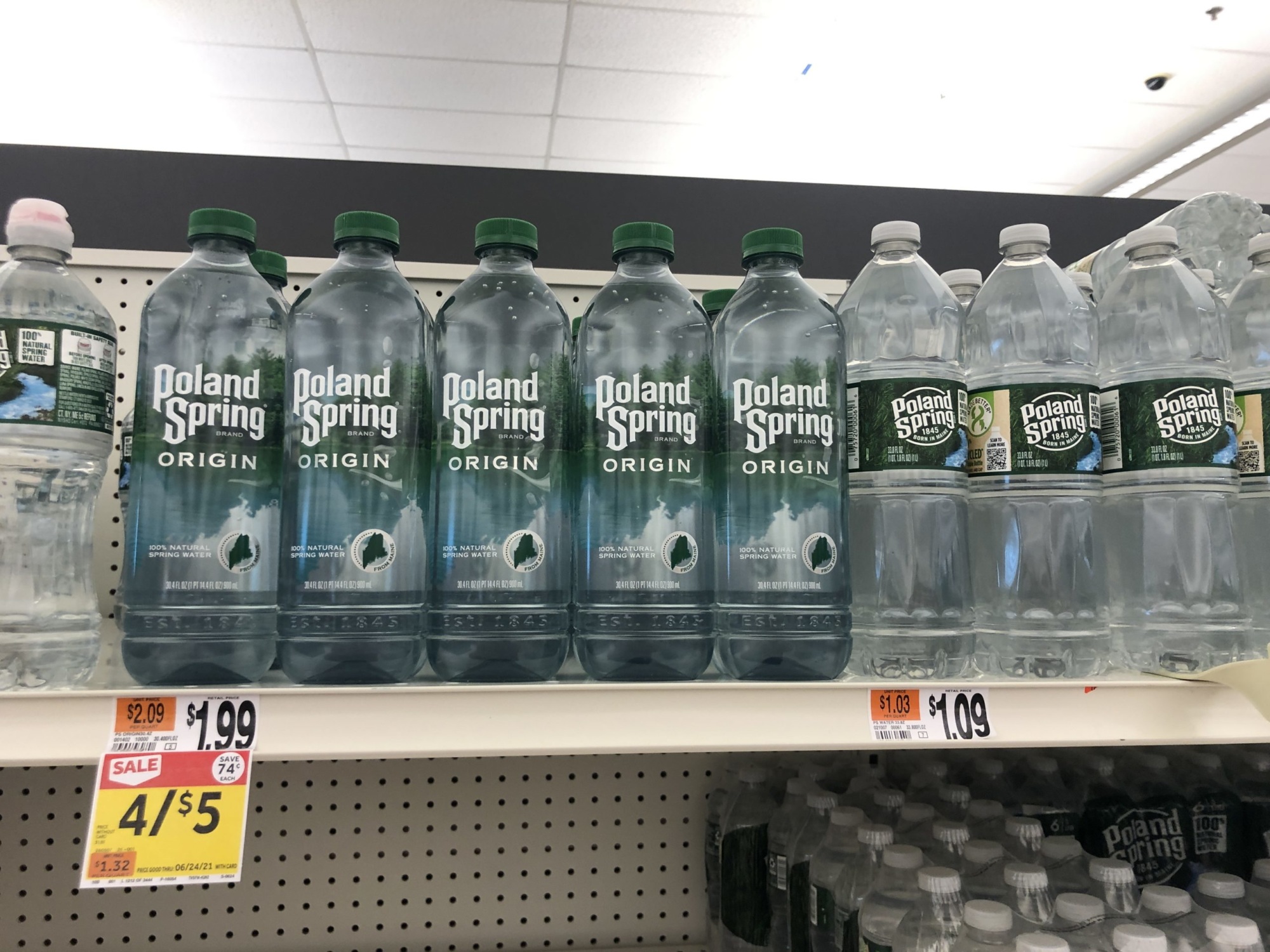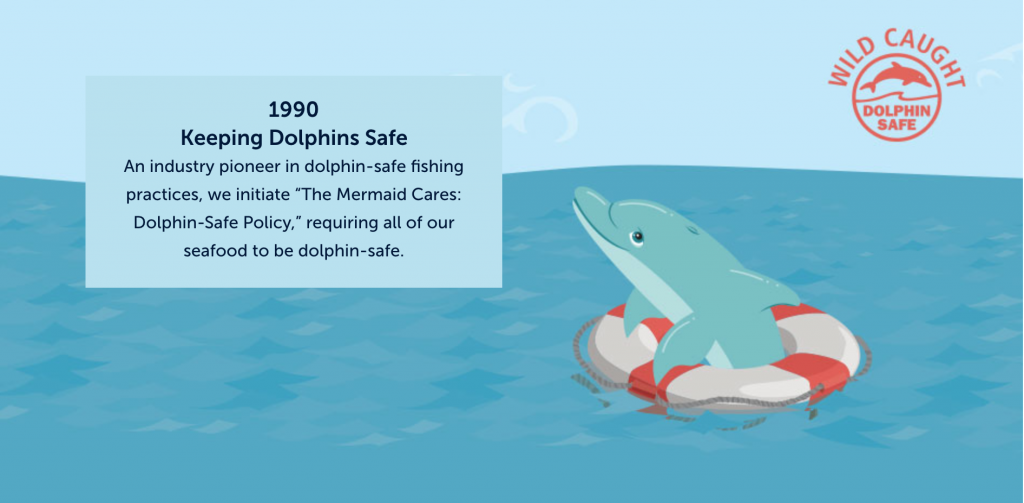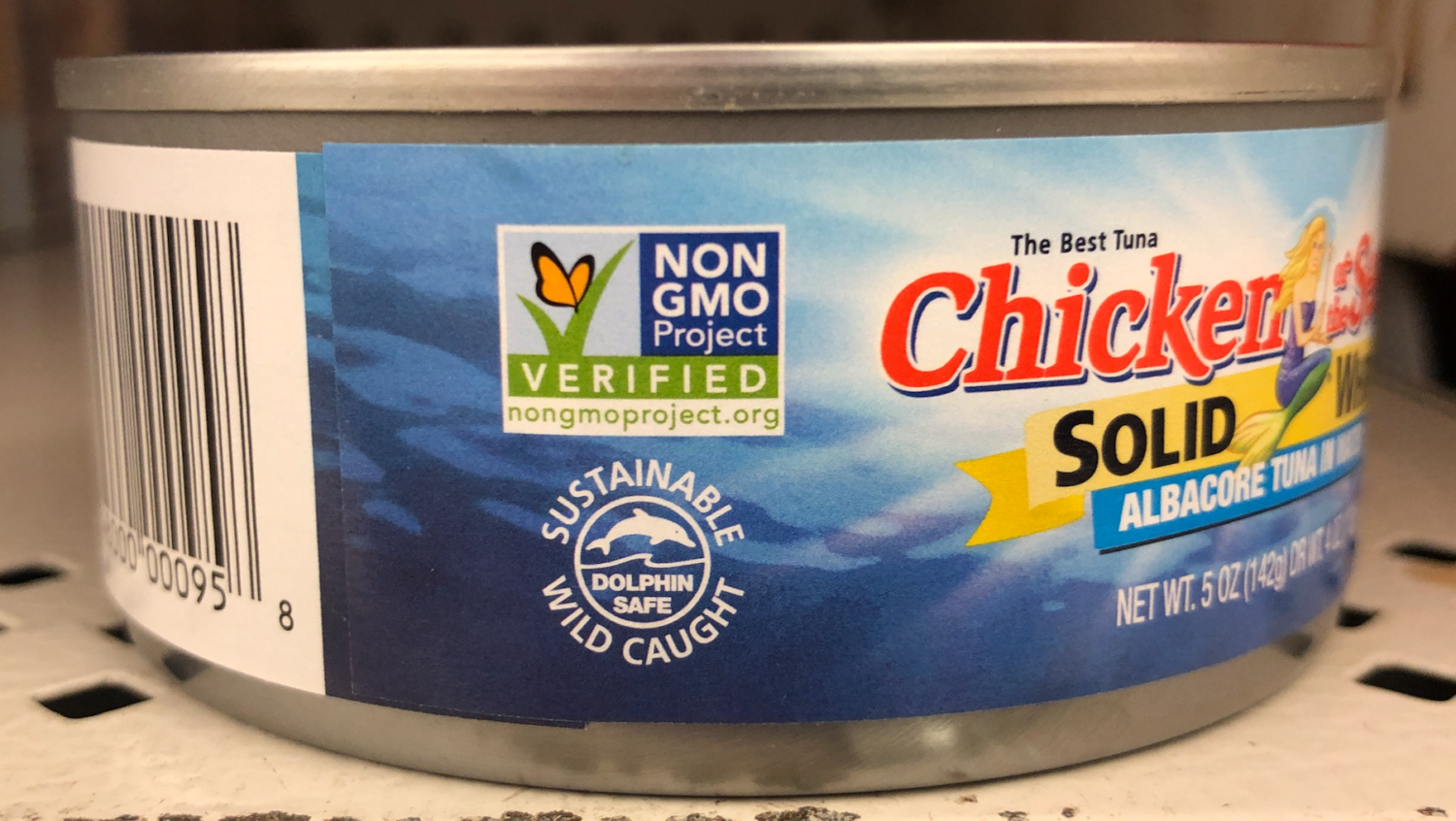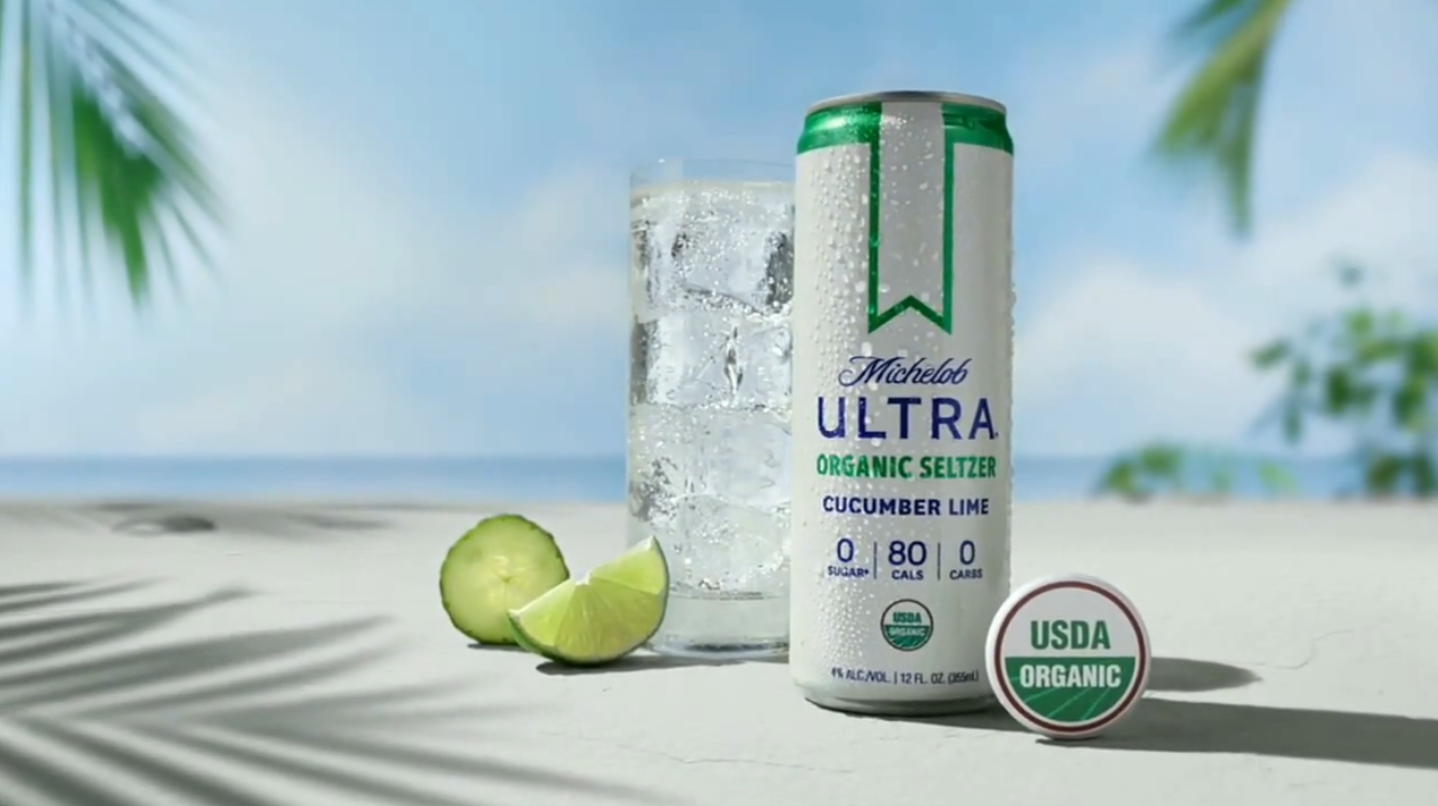
Poland Spring ORIGIN
Poland Spring charges consumers a premium for its ORIGIN water. What are they getting in return?
Lawsuit alleges company's tuna fishing methods kill dolphins, despite a "dolphin safe" logo on the can.
Chicken of the Sea is one of three major tuna brands currently facing a class-action lawsuit alleging that it misrepresents that its tuna is sourced using “dolphin safe” methods.
The lawsuit contends that the tuna fishing methods Chicken of the Sea uses are in fact harmful to dolphins, among other marine life, in violation of the Dolphin Protection Consumer Information Act. The 1990 law says it is illegal to claim a product is “dolphin safe” if it contains tuna harvested in a manner that is harmful to dolphins. Makes sense.
Furthermore, the lawsuit alleges that Chicken of the Sea’s promotion of membership in the International Seafood Sustainability Foundation (ISSF) and certification by the Marine Stewardship Council are both misleading because these organizations are not independent and don’t actually support banning or controlling unsustainable fishing techniques.
The suit points to Chicken of the Sea’s website where the company acknowledges casting long lines and purse seine nets to catch tuna, as opposed to the individual pole-and-line method. Purse seining involves drawing a net around a school of tuna to capture them quickly and efficiently (as depicted by Chicken of the Sea here). According to the suit, this method results in many dolphins being inadvertently caught in the net alongside the tuna, since “tuna schools … often congregate with dolphin schools.” When the net is brought up, both species are found inside.
Craig Rexroad, director of communications at Chicken of the Sea’s parent company, Thai Union, said in a phone interview with TINA.org that Thai Union “doesn’t own any fishing vessels” but confirmed the existence of “some pursing boats.”
The Marine Stewardship Council, whose logo Chicken of the Sea prints on its products, allows for the use of purse seining by fisheries in its program.

In an FAQ section of its website, Chicken of the Sea says of its dolphin-safe policy:
Chicken of the Sea remains fully committed to the 100% dolphin-safe policy implemented in April 1990. This policy guarantees that Chicken of the Sea will not purchase tuna from vessels that net fish associated with dolphins, and we require certification of dolphin-safe fishing practices from all tuna suppliers.
Despite this claim, Chicken of the Sea is ranked near the bottom of Greenpeace’s Tuna Guide. The guide notes that Chicken of the Sea “sources its tuna from destructive fishing methods that unnecessarily kill vulnerable marine life,” and that while the company “claims it’s dedicated to sustainable products, it doesn’t offer a single one in the U.S.”
Chicken of the Sea told TINA.org that it is still reviewing the lawsuit. StarKist and Bumble Bee face similar allegations related to their use of a “dolphin safe” logo on their cans of tuna and their fishing methods.
Find more of our coverage on tuna products here.
Our Ad Alerts are not just about false and deceptive marketing issues, but may also be about ads that, although not necessarily deceptive, should be viewed with caution. Ad Alerts can also be about single issues and may not include a comprehensive list of all marketing issues relating to the brand discussed.
Poland Spring charges consumers a premium for its ORIGIN water. What are they getting in return?
Consumers aren’t the only ones who watch the ads. Competitors do too.
At the intersection of wine and wellness.


